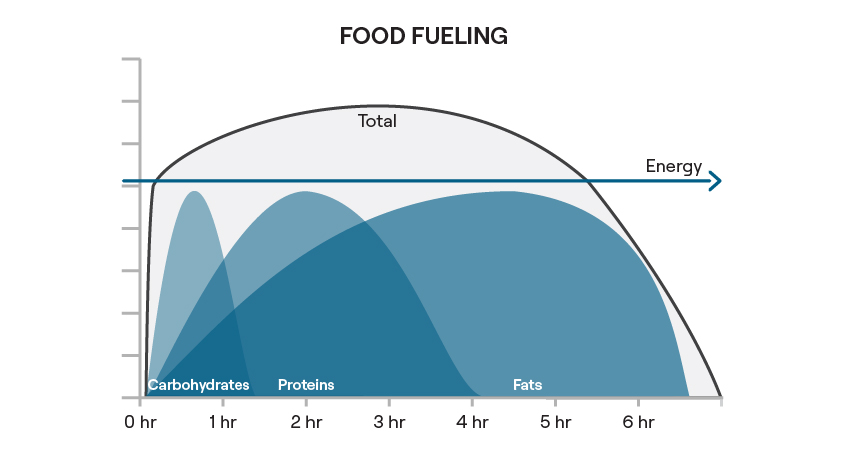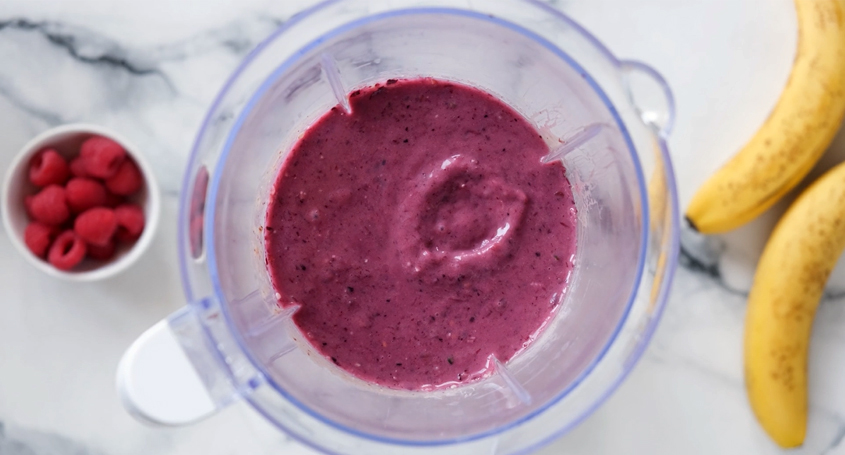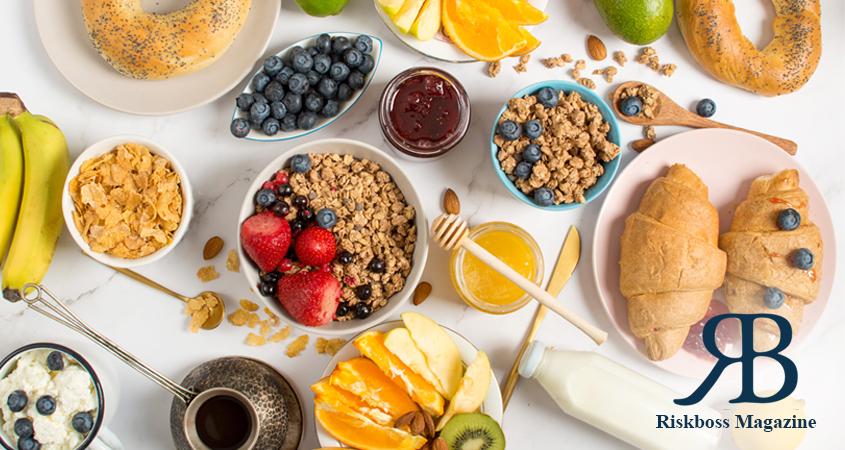There’s an old saying:
“Eat breakfast like a king, lunch like a prince, and dinner like a pauper.”
It holds true. Studies reveal that your metabolism operates most efficiently when you front-load your calories. Given this, I find myself puzzled by the trend of intermittent fasting. While it does lead to weight loss due to reduced calorie intake, it’s also been reported to boost energy levels. I have two theories that might explain these observations.
FIRSTLY, many people’s breakfasts consist of carbohydrates like muffins, bagels, or toast – foods that lack high fiber content, such as oatmeal.
This causes rapid spikes in blood sugar, followed by a crash that leaves us feeling tired. Combine this with a caffeinated beverage, which suppresses your body’s natural cortisol secretion, the hormone responsible for improving energy and stamina. I consistently advise my clients that a breakfast devoid of fiber and protein can adversely affect cognitive and physical health, increasing the risk of type II diabetes due to insulin resistance.
SECONDLY, when you opt to skip breakfast or practice intermittent fasting, your body’s stress-response hormone, cortisol, kicks in.
It acts like a daily turbo booster, providing a sense of “energy” even when you’re not eating. While this might seem advantageous at first, over time, this dietary pattern becomes less effective as your body adjusts to the absence of breakfast. Consequently, your body becomes deficient in nutrients, as you’re not starting the day with a nourishing meal.
Therefore, persistent nutrient deficiencies can arise. Protein (amino acids) and essential nutrients (vitamins and minerals) are vital for supporting hormones and immune health. Neglecting these can lead to irregular periods, low energy, frequent infections, reduced muscle mass, and even mental health issues such as anxiety, depression, disrupted sleep, not to mention aesthetic concern such as hair loss, and weakened skin.

So, what constitutes a healthy breakfast?
In my opinion, it should incorporate a complex carbohydrate, protein, and preferably a healthy fat source. It definitely shouldn’t begin with sugar-laden foods or beverages like donuts or sugary juices, which contribute more sugar than our bodies need in an hour and get stored as fat. A complex carbohydrate is crucial for a gradual sugar release. For instance, I enjoy oatmeal with added superfoods like chia and hemp seeds.
Protein holds the same calorie count as carbohydrates. The wonderful aspect of lean protein is that excess intake doesn’t transform into fat – it’s excreted by our kidneys.
LASTLY, our bodies require healthy fats from sources like nuts, seeds, avocados, dairy, and fish. These fats help balance out the calories and energy we need over a span of four to six hours.
When I’m in a hurry, especially if I’m aiming to catch an early morning flight, my go-to is a functional smoothie. It’s a quick and convenient option to ‘eat’ on the go or ‘drink’ on the move. What sets it apart is its optimization of nutrients, designed to align with my energy requirements as outlined in my food energy curve.

Opting for a smoothie can be particularly beneficial for individuals who tend to skip meals due to time constraints or a preference for simplicity. It serves as an excellent solution to combat the allure of coffee, sugary juices, and other less nutritious breakfast choices. To enhance the nutritional value of my smoothie, I ensure to incorporate oatmeal, superfoods, multi-vitamins, and collagen, thus creating a comprehensive functional meal replacement to start my day.
My mission revolves around guiding people towards improved eating habits, better sleep, and enhanced exercise routines. This naturally involves fostering healthier lifestyle choices. As part of this endeavor, I am excited to introduce a wellness hub in the vibrant Yorkville area of Toronto, Canada. Central to this hub is our dedicated smoothie bar.

Let me share the commitment we make with each of our smoothies, whether for our clients or those who simply wish to drop by at our theBespoke\\WellnessGroup located at 1 Yorkville Avenue.
Here’s what we DO:
Create a nutrient-dense beverage with up to 30 g of protein.
- Use a blend of fruits and vegetables
- Pack with superfoods
- Blend with a non-GMO or organic plant-based milk
- Professional-grade protein powder
- Add-ons of multivitamins and supplement boosters
Here’s what we WON’T DO:
Overload your smoothie with calories.
- Burden your body with fructose sugars (from fruit juice)
- Add manufactured sugar sweeteners
- Thicken with artificial creamers
- Dilute with lots of ice and water


